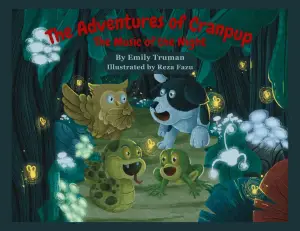Book Review: "Lord of the Flies" by William Golding
As a devoted reader with a penchant for classics and thought-provoking literature, I decided to dive into William Golding’s "Lord of the Flies." Known for its incisive exploration of human nature and societal decay, this novel has long piqued my interest. I was particularly intrigued by how this 1954 classic remains relevant today, with themes that resonate strongly in our contemporary world.
"Lord of the Flies" begins with a gripping premise: a group of British schoolboys crash-land on an uninhabited island amidst a world on the brink of war. Freed from adult supervision, their initial excitement morphs into chaos as they attempt to govern themselves, exploring the inherent darkness of human nature. Golding’s writing elegantly balances the innocence of childhood with the chilling reality of savagery, making it both a compelling narrative and a profound commentary on the human condition.
From the outset, I was struck by Golding’s vivid descriptions and the rich symbolism he employs. The island is beautifully depicted, almost as a paradise that quickly becomes a backdrop for descending into chaos. As I turned the pages, I couldn’t help but appreciate Golding’s skill in weaving imagery with deeper meanings.
Positives
-
Thought-Provoking Themes: As I engaged with the characters, I found myself reflecting on the nature of power, fear, and the thin veneer of civilization. Golding effectively conveys how quickly societal norms can crumble under the weight of primal instincts. The characters—Ralph, Jack, Piggy, and Simon—each serve as personifications of various aspects of humanity and the struggle between order and chaos.
- Engaging Character Development: Each character experiences a significant transformation as the story progresses. I found Ralph’s leadership journey particularly captivating as he grapples with the challenge of maintaining order. Jack’s transformation from a choirboy to a ruthless leader was equally compelling; it mirrored the historical narratives of power dynamics throughout human history.
However, I did notice some drawbacks that several readers pointed out.
Drawbacks
-
Pacing Issues: While I found the beginning of the book to be captivating, there were sections where the pacing slowed down significantly. It took a while to reach the pivotal moments of conflict and revelation. Some readers, like Jackson Mayo, expressed a similar sentiment, noting that the buildup could feel drawn out at times.
- Disturbing Content: The novel’s themes are undeniably dark, and some readers might find the violence and moral ambiguity unsettling. There were moments of intense savagery that challenged my comfort levels, as seen during Simon’s tragic fate. This aspect may not resonate well with every reader.
In examining the official book description, I can fully understand why "Lord of the Flies" is hailed as one of the greatest books ever written for young adults. Golding’s exploration of freedom, order, and subsequent terror illustrates a poignant moral lesson, inviting readers to reflect on the world around them as much as the one crafted in the narrative.
Final Verdict
In conclusion, my experience with "Lord of the Flies" was largely positive. Its dark, enthralling narrative serves as a powerful reminder of the complexities of human nature. While the pacing and disturbing elements might not cater to every reader’s tastes, the novel is undoubtedly a compelling exploration of the line between civilization and savagery.
As a thought-provoking classic, I would wholeheartedly recommend "Lord of the Flies" to anyone looking for a deep dive into the intricacies of humanity, survival, and moral dilemmas, blended meticulously in a gripping storyline. Consider picking up a copy if you’re ready for a narrative that stirs not only your imagination but also your conscience.
Discover the haunting tale of survival and human nature in Lord of the Flies. >>








